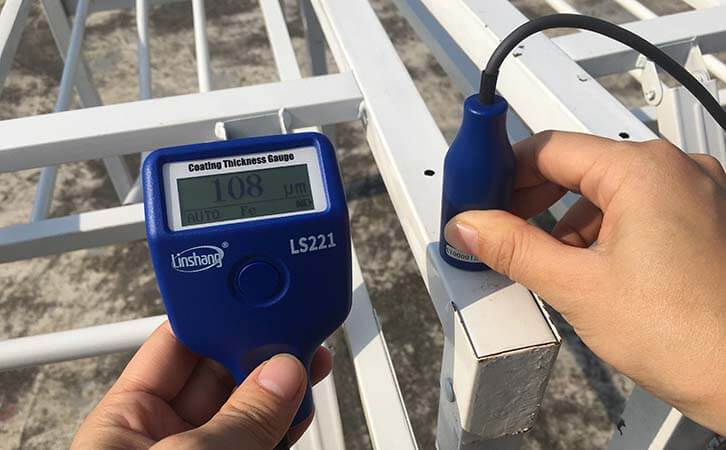How to Measure Dry Film Thickness?
1. Why do we measure dry film thickness?
Dry film thickness (DFT) is the most important during the inspection or quality control of protective coatings. Even the most basic protective coating specifications inevitably require DFT measurement. It is considered to be the most important factor in determining the durability of coatings. The thickness of each coating in the system and the DFT of the entire system must be measured and recorded to indicate that the specified system will meet the required durability.
Dry film thickness measurement is important for all personnel involved in coating work. Contractors and inspectors obviously need to know how many measurements are required during inspection or QA work. Extensive dry film thickness testing also increases time and cost. There are many other important aspects of DFT measurement, including the calibration of dry film thickness gauges and the effect of surface coatings on thickness measurement.
2. How to measure dry film thickness?
Coating is the most critical component of anti-corrosion coating system. The main function of the coating is to provide corrosion protection by adhering to the substrate. It is essential that the coating thickness must be sufficient to ensure the ability of corrosion protection. Manufacturers usually recommend a reasonable dry film thickness range. DFT is a parameter considered during quality control or inspection. The durability of the coating is a function of DFT. The single coating thickness in the coating system and the entire system reported by DFT determine the durability of the coating.
3. How to use dry film thickness gauge to measure dry film thickness?
After the coating is dried, we can measure the dry film thickness according to the national standard GB1764-89 (79). The methods for measuring the dry film thickness include lever micrometer, magnetic dry film thickness gauge, eddy current dry film thickness gauge and destructive testing. Most people will choose magnetic dry film thickness gauge and eddy current dry film thickness gauge. Dry film thickness gauges that use magnetic and eddy current measurement principles are non-destructive measurements. It will not cause damage to the coating during use. Magnetic dry film thickness gauges can measure non-magnetic coatings on magnetic metals. Eddy current dry film thickness gauges can measure non-conductive coatings on non-magnetic metal.
4. Steps for measuring dry film thickness gauge
When measuring, we need to select five points that are evenly distributed. Taking the Linshang LS221 electronic thickness gauge as an example.
Hold the groove of the instrument with your hand and press the probe vertically on the object surface (avoid edges or uneven places).
The coating thickness will be immediately displayed on the interface and the measurement only takes 0.5 S.
This instrument does not need to be calibrated and only needs zero adjustment with high accuracy and stable data.
We can use a dry film thickness gauge to make three measurements at each point and then take the average.
If the dry film thickness does not reach the coating range specified by the manufacturer, the manufacturer needs to repaint the unqualified parts. Linshang LS221 dry film thickness gauge is widely welcomed by customers in the coating industry due to its high cost performance. Want to know detailed information about Linshang LS221 dry film thickness gauge? Please contact-sales21@linsahngtech.com.
- High precision coating thickness gauge for used car
- Automotive paint protection films coating thickness gauge
- Plating Thickness Measuring Instrument for Detecting Anti-corrosion Coating
- Linshang LS220, LS191, LS160A– Necessary for Car Cover Inspection
- Coating Thickness Gauge for Second Hand Vehicle
- Zero Adjustment Step of Coating Thickness Gauge
